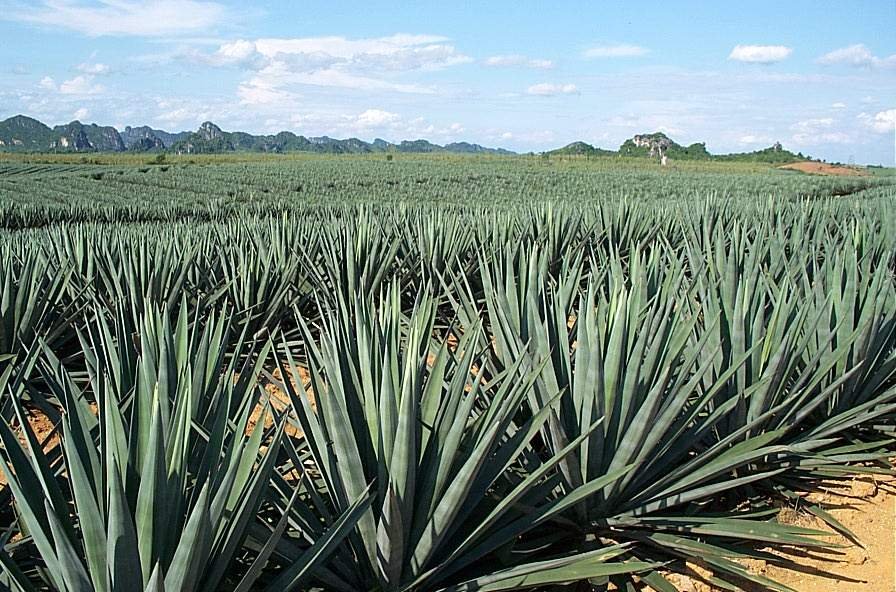In Pakistan, sisal cultivation has been carried out for several decades, particularly in the provinces of Sindh and Baluchistan.
Sisal is a perennial succulent plant that is native to Mexico and Central America. The plant has been cultivated in many parts of the world, including Pakistan, due to its high economic value. Sisal is primarily cultivated for its fiber, which is used in the production of a variety of products, including rope, twine, paper, and textiles. In Pakistan, sisal cultivation has been carried out for several decades, particularly in the provinces of Sindh and Baluchistan.
The plant is well-suited to the arid and semi-arid conditions of these regions, where other crops may not thrive. Additionally, sisal is a drought-resistant plant that can grow in poor soil conditions, making it an ideal crop for farmers who do not have access to irrigation or fertilizers.
Sisal cultivation in Pakistan is typically carried out on small-scale farms, with farmers growing the plant for subsistence or for sale to local traders. The plant is relatively easy to grow and, once established, requires minimal maintenance.
Sisal plants can grow up to three metres in height, and their long, sword-shaped leaves can reach up to two metres in length. The leaves are harvested by hand, with the outer green parts removed to reveal the white fibers beneath.
The fiber obtained from sisal leaves is of high quality and has several advantages over other natural fibers. Sisal fibres are strong, durable, and resistant to abrasion, making them ideal for use in products that require high-strength materials. Additionally, sisal fibre has low thermal conductivity, making it suitable for use in products that require insulation, such as mattresses and automotive parts.
The rope made from sisal fibres is particularly popular among farmers and fishermen, who use it to tie down their equipment or to secure their boats. Sisal paper is used in the production of bags, envelopes, and other paper products, while sisal textiles are used in the production of carpets, rugs, and other home furnishings. Sisal twine is used in a variety of industries, including packaging, agriculture, and construction.
The economic importance of sisal cultivation in Pakistan cannot be overstated. The plant provides a source of income for many farmers in rural areas, particularly those who have limited access to other crops. Additionally, sisal cultivation is an environmentally friendly alternative to other crops, as it requires less water and fewer pesticides and fertilizers.
Key reasons why sisal is an important crop in Pakistan
The following are some of the key reasons why sisal is an important crop in Pakistan:
Economic value:
Sisal cultivation provides a source of income for many farmers in rural areas, particularly for farmers who have limited access to other crops.
Environmental benefits:
As we know, sisal is a drought-resistant plant and requires fewer pesticides and fertilisers than other crops, making it an environmentally friendly alternative.
Employment opportunities:
Sisal cultivation creates employment opportunities for local communities, particularly for women.
Export potential:
Pakistan has the potential to export sisal fibres and products to other countries. Exporting sisal fibres and products can provide a source of foreign exchange for Pakistan’s economy.
Usage of Sisal Plant
Sisal is a versatile plant that can be used to provide various products, including:
Sisal fibres:
The most common product produced from sisal is its fiber. The fibres are extracted from the leaves of the sisal plant, which are then washed and dried. The fibres can be used to produce a wide range of products, including rope, twine, paper, textiles, and carpets.
Sisal yarn:
Sisal fibres can be spun into yarn, which can be used to produce various textiles, such as carpets, rugs, and mats.
Sisal paper:
Its fibres can be used to produce paper. The fibres are pulped and processed in the same way as other plant fibres, such as wood pulp.
Sisal bags:
Sisal fibres can be woven into bags, which are strong and durable. These are commonly used for packaging agricultural products, such as coffee beans, rice, and flour.
Sisal furniture:
Furniture can be woven from the fibres of sisal. It is durable and eco-friendly.
Sisal insulation:
Sisal fibres can be used as insulation material for buildings. Sisal insulation is eco-friendly, non-toxic, and biodegradable.
Construction:
Sisal fibre can be used as reinforcement in cement or concrete to increase their strength and durability.
Automotive industry:
Sisal fibre is used to make seat covers, door panels, and other interior parts of automobiles.
Marine industry:
Sisal fibre is used in the production of ropes, nets, and fishing lines.
Household items:
It can be used in the production of various household items such as baskets, lampshades, and coasters.
Sports industry:
Sisal fibre is used in the production of sports equipment (baseballs, cricket balls, and hockey sticks).
Erosion control:
Preventing erosion on steep slopes and riverbanks by stabilizing soil and preventing it from washing away by using sisal fibers.
Personal care:
Its fiber is used to make exfoliating gloves, loofahs, and other personal care products.
Art and Crafts:
Sisal is used by artisans to make sculptures, baskets, hats, and other decorative items.
Energy production:
Sisal is being researched as a potential source of biofuels and biogas due to its high cellulose content.
In conclusion, sisal is a versatile plant that can be used to produce a wide range of products. From fibers and yarns to furniture and insulation, Sisal products are eco-friendly, sustainable, and durable. The versatility and sustainability of sisal make it an ideal crop for farmers in Pakistan, and promoting sisal cultivation can provide numerous benefits to farmers, local communities, and the environment.
This article is jointly authored by Muhammad Zain Shahzad, Rizwan Maqbool, and Muhammad Atif Javed.
